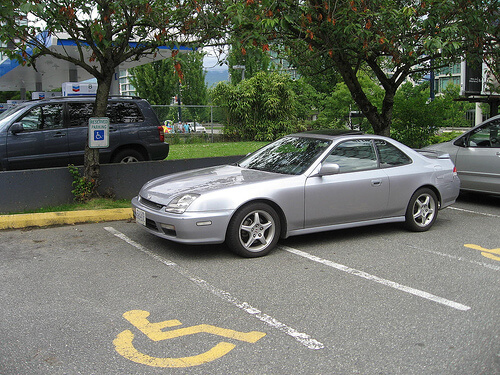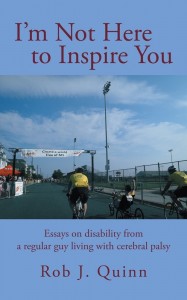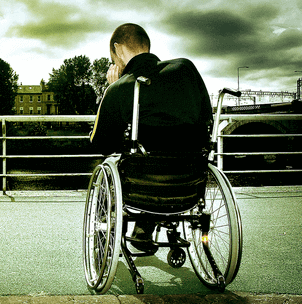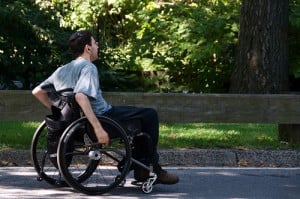The Mobility Resource Blog
Emotions
10 Things to Never Say to a Person in a Wheelchair
Spend a week or a decade in a wheelchair, chances are you’ll be asked some pretty crazy things. And I get why–people are uncomfortable around things that are different, especially wheelchairs. (Even more so if they don’t know anyone who uses a wheelchair on a personal level).
4 Places Able-Bodied People Should Never Be
Going out in public is often riddled with obstacles for people with physical disabilities. While this is largely due to inaccessible structures like stairs and narrow doors, so many unnecessary barriers are created by able-bodied people who place themselves where they shouldn’t be. That’s not to say I believe I should have access to special privileges because of my disability. Rather, reserved access locations are intended to give people with disabilities equal opportunities to experience the world around them. Here are four accessible places where able-bodied people should never be:
The Ever-Changing Life: Transitioning With Disability
Life is change. Something we must learn to adapt to. This is true whether you are the picture of perfect health or living with a disability.
10 Crazy Things People Still Say To Someone Who Uses A Wheelchair
I’ve heard some pretty crazy things come out of people’s mouths in my few short years as a wheelchair user. Most people definitely mean well, but some sentiments aren’t received the way many able bodied people might expect. In the disabled community, it’s not uncommon for us to joke with each other about some of our interesting conversations with family, friends and strangers that often involve some off putting statements. below are the top 10 things that I’ve heard people say since my injury that don’t necessarily leave me with a warm and fuzzy feeling.
Book Review: ‘I’m Not Here to Inspire You’ By Rob J. Quinn
Real, thought provoking and honest describe author Rob J. Quinn’s I’m Not Here to Inspire You: Essays on disability from a regular guy living with cerebral palsy.
10 Things Only Wheelchair Users Would Understand
When living the life of someone with a disability, you get a very unique perspective of the world and this perspective can only be shared by other people in your very same situation. If you use a wheelchair especially, there are several things that happen, some good, some funny and only someone else in a wheelchair can understand what it’s like.
How To Get Over Your Body Image Issues And Dance Naked
The world would be an incredibly uninteresting place if every person looked alike. Yet, instead of fully embracing our individuality, many of us spend crazy amounts of time and money trying to look like those who we feel are more attractive than us. I was once guilty of this destructive behavior myself.
“What’s Wrong With You?” And Other Personal Questions About Disabilities You Should Avoid
I’m pretty sure not a week goes by where I’m not subjected to remarks about my disability. Now, before I even get into this topic, I’m going to politely put forth my counter-argument to the inevitable responses that I’m being nit-picky about semantics or complaining unnecessarily about comments made by well-meaning able-bodied people. I believe that if you truly mean well, you’ll consider how it feels for people with disabilities to be gawked at, subjected to ridiculous comments or prodded for our life stories, and perhaps stop to think about whether it’s appropriate to blurt out a nosey question.
Social Isolation: Are People With Disabilities Invisible?
You know it’s going to happen. After awhile you develop radar for it.
You and your husband are at the movies with some friends. Out in the lobby, you chit chat about the movie, then everyone makes plans to have dinner together at one of the friend’s house two Fridays from now. We extend our regrets. Even though we really wanted to go.
5 Tips Everyone Should Consider When Discussing Disabilities
Discussing disabilities may feel like trying to avoid metaphorical tripwires.
One innocent misstep and an able-bodied person may receive a tongue lashing just for saying “handicap vehicle” instead of “wheelchair accessible vehicle.”
To help you sidestep situations like the one above, note the following tips when discussing disabilities.
- 1
- 2

















